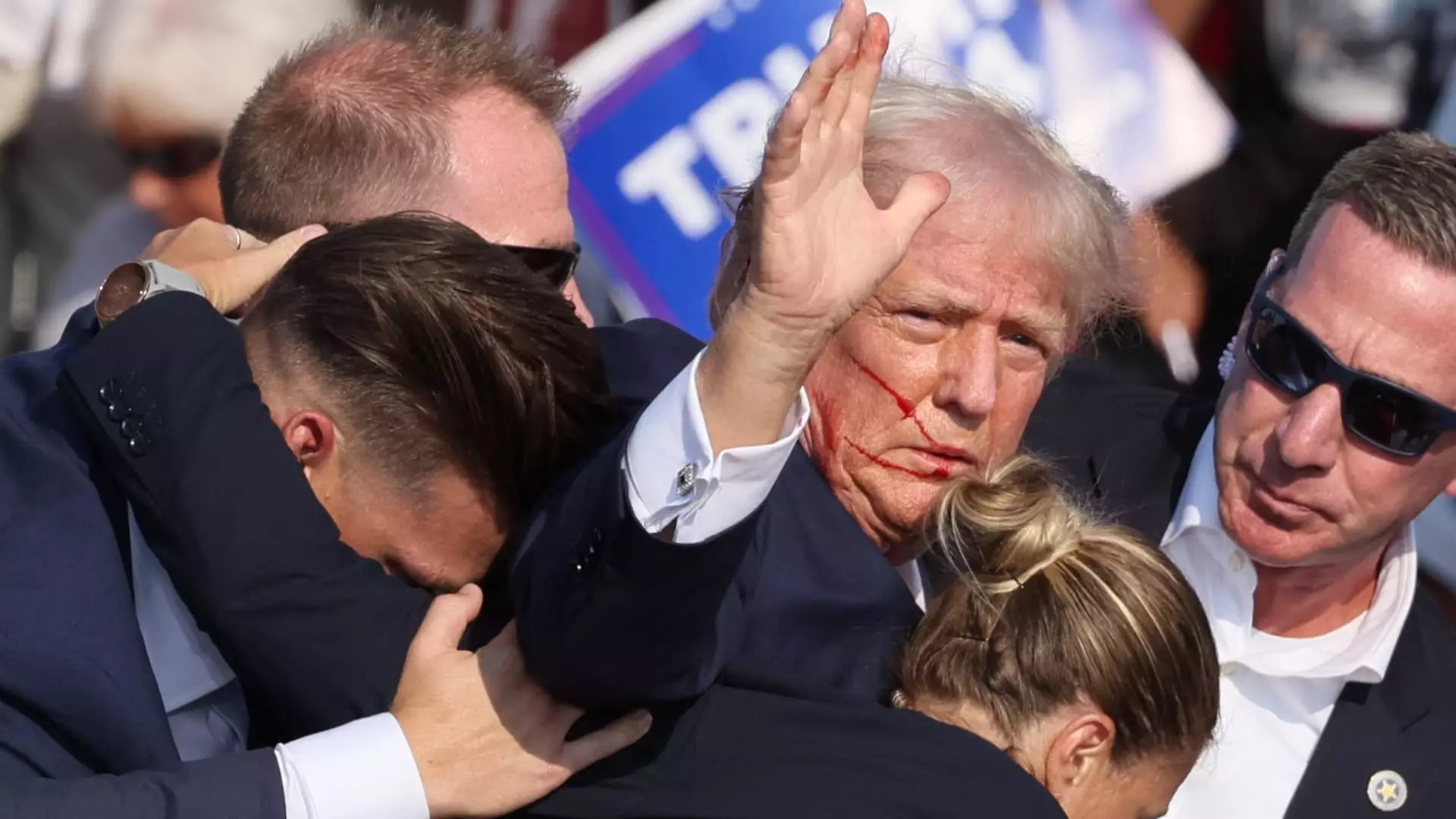The political landscape in the United States has long been fraught with tension, but the recent incident where former President Donald Trump was injured at a rally sharply underscores the alarming reality of political violence in today’s society. As President Joe Biden expressed in his address following the event, this violence is “sick” and unacceptable. Such stark language captures not only the initial shock that permeated the air but also highlights the deeper issues at play within the American political system.
Recent events, including the gunshots that interrupted Trump’s rally, serve as a brutal reminder of the repercussions that political animosities can have on individuals’ safety and democratic discourse. The fact that a former President was injured within the context of a political rally questions the state of civil dialogue in America. Political violence, unfortunately, has resurfaced as a dreadful yet concerning reality in an era where words can incite deeper divisions.
In the wake of the tragedy, President Biden called for unity, arguing that Americans must come together to denounce such acts of violence. His remarks resonate with various stakeholders from both sides of the political aisle, intensifying the message: we must not allow a culture of violence to hijack our democratic values. When political rhetoric escalates to the point where individuals feel justified in resorting to violence, it is a signal that dialogue has devolved into discord.
Biden’s perspective—that unity is essential for the country’s healing—prompts us to ponder, what does unity truly mean in such a polarized environment? Unity should not imply the suppression of differing opinions but rather an acceptance of discourse devoid of violence. This is crucial for a functioning democracy where diverse opinions can coexist.
The incident prompted a wave of support for Trump from political allies and adversaries alike. Both Barack Obama and George W. Bush unequivocally condemned political violence, asserting that there is no place for it in American democracy. Their statements underscore an essential fact: irrespective of political affiliation, there are shared values that must guide our actions. By rallying behind the principle that violence is intolerable, former leaders set a precedent that transcends party lines.
Gabby Giffords’ reaction is particularly poignant, having survived an assassination attempt herself; she knows the toll that political violence can take. Her heartfelt message serves as a reminder that the ramifications of violence linger far beyond the initial act. Such sentiments reflect a growing recognition that political violence, once an abstract concept for many, has become a real and present danger to our democracy.
Social media platforms have become a battleground for opinions and emotions in the wake of such incidents. Elon Musk’s support for Trump, contrasting with the nationwide call for accountability, reveals the stark divide that still pervades public discourse. This divergence lays bare the complex relationship between technology, politics, and responsibility.
Amidst the chaos that surrounds such incidents, there is a pressing need for a national dialogue that addresses not just the symptoms, but the root causes of political violence. The polarization of American society is not merely a fad; it has consequences that ripple through every layer of community engagement. An honest discussion about the tone of political discourse, the role of media in shaping perceptions, and the responsibilities of public figures in promoting civil debate is imperative.
Moving forward, it becomes essential for all citizens—including politicians, influencers, and average Americans—to reconsider the rhetoric they employ. The words we choose carry weight, especially in a highly charged environment. Constructing a future where civility reigns over vandalism demands effort from every sector of society.
The recent episode serves as a critical turning point. It is a clarion call urging individuals across the political spectrum to reject violence and embrace a culture of dialogue and empathy. The issue at hand is not merely about one individual’s safety; it is about the preservation of our democratic principles and the commitment to coexist despite our differences. The road ahead may be difficult, but unity, respect, and understanding must guide the way if civil discourse is to reclaim its rightful place in American politics.


Leave a Reply